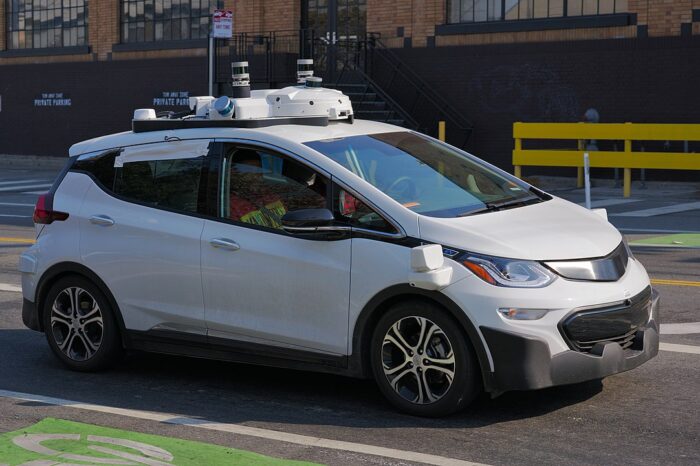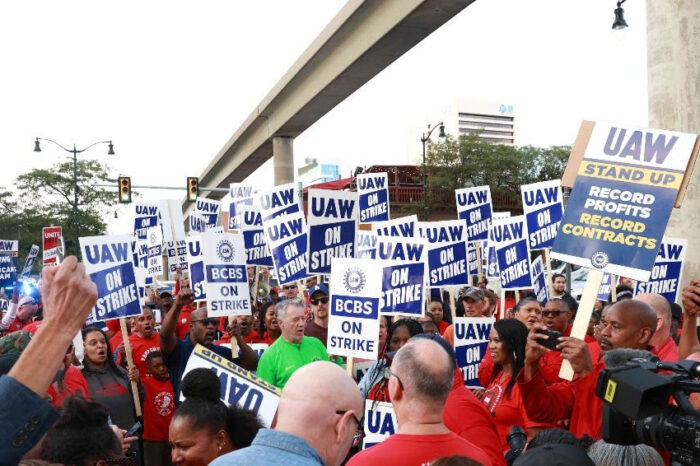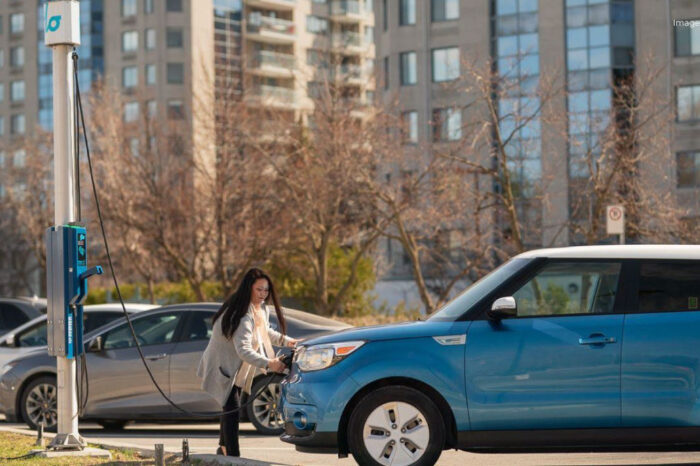Uber, Lyft and other American gig economy companies face regulatory headaches, driver shortages and worker protests, while Chinese ride-hailing giant Didi denies rumors that it is facing a state takeover.
British automaker Lotus unveils four new EVs and Mercedes announces five. Toyota, which has resisted the rush to an all-EV future, is nevertheless the U.S. leader in EV-related patents, according to one study. Elon Musk claims the latest iteration of Full Self Driving will be widely available soon. VW begins testing autonomous vans in Germany. E-bikes without chains may be the next big thing, assuming everyone doesn’t buy an Ola, the high-speed electric moped that is finally coming to the U.S. And Genesis offers another big first: wireless EV charging!
![]()
Toyota powers up battery biz: The Japanese auto giant announces it will invest $13.7 billion to develop and supply EV batteries by 2030, with a goal of setting up 70 battery lines. This announcement, along with the recently announced plans to make 15 new EVs by 2025, shows that the world’s largest automaker believes that EVs will be an increasingly important part of the auto market, even if company leaders continue to dismiss talk of an all-EV future. In its statement announcing the battery investment, Toyota described EVs as “important in regions where renewable energy is widely adopted,” a not-so-subtle suggestion that EVs may not be environmentally superior to ICEs or hybrids in places where the grid is still largely powered by coal. And Toyota, of course, remains long on hydrogen.
Hyundai ALSO bets on hydrogen: The Korean automaker says it will put a major emphasis on hydrogen fuel cells in the coming years, pledging to offer hydrogen-powered versions of all of its commercial vehicles by 2028.
Mercedes announces five: Benz introduces three new electric SUVs and two new sedans ahead of the 2021 IAA International Motor Show in Munich.
What takeover? The Beijing city government denies reports that it is orchestrating a takeover of Didi by urging state-owned companies to invest in the Beijing-based ride-hailing giant. Didi also denies the claims, which were first reported last week by Bloomberg. The company continues to face legal scrutiny in China; the government has accused it of misusing customer data.
The Genesis of wireless charging: Genesis, the luxury division of Hyundai, says its forthcoming GV60 SUV will be the first EV to offer wireless charging. The optional feature will be provided by WiTricity, a wireless charging company based in Watertown, Mass. Genesis says the wireless chargers will power up a battery in about six hours compared to about 10 hours with a normal charger.
The best EVs on the cheap: Inside EVs walks you through the best 20 used EVs under $20,000.
Toyota’s patent play: Although Toyota is way behind when it comes to EV sales, a new study finds the Japanese auto giant leads the industry in patents on EV technology in the U.S., including batteries, motors and chargers. The analysis by Tokyo-based research firm Patent Results ranks Toyota #1 based on the number and significance of its patents, ahead of Ford (#2), Honda (#3), GM (#4), Nissan (#6) and Tesla (#8).
Lotus announces four new EVs: The British speciality automaker, whose recently-released 2022 Emira will be its last internal combustion vehicle, announces plans for four new EV models over the next five years: a coupe-sedan, a sports car and two SUVs.
Paying for the driver shortage: The cost of the average Uber or Lyft fare rose 92% between January 2018 and July 2021, a new analysis by Rakuten Intelligence finds. Prices have risen particularly fast in recent months because the supply of drivers has not rebounded nearly to the extent as demand from customers.
DoorDash workers protest CEO: Dozens of people who work for food delivery app DoorDash demonstrated in front of the San Francisco home of CEO Tony Xu, arguing that the company is failing to comply with California law in the wake of Prop 22 being struck down in court. The company says that it is within its rights to follow the rules put in place by Prop 22 while it, along with other gig companies, is appealing the ruling.
Shell lends a charging hand: The energy giant plans to install 50,000 EV chargers in the UK by 2025, a big help in the country’s push to eliminate gas-powered cars by 2030. The company is looking to capitalize on the many British motorists — particularly in cities — who do not have off-street parking at home and will likely rely on public charging stations
![]()
FSD beta is imminent: In a tweet Wednesday, Elon Musk says a new beta version of Full Self Driving will soon be available to a select number of Tesla owners. After four weeks of testing, the plan is to release it to a much larger group –– anyone with the right hardware who purchases the software. Amidst a federal investigation into Tesla Autopilot and calls for regulators to crack down on Tesla’s questionable marketing of FSD (starting with its inaccurate name), Musk assures fans that Tesla is taking all the necessary precautions before releasing a new product: “Safety is always paramount at Tesla.”
VW & Argo start testing commercial AVs: Volkswagen Commercial Vehicles, a VW subsidiary, and Pittsburgh AV software startup Argo AI unveil ID Buzz AD (autonomous driving), their first try at a driverless electric commercial van. The two companies will soon begin testing the vehicles on closed courses near Munich, with the goal of eventually producing a viable van-pooling product.
Toyota resumes autonomous shuttles: Athletes and others taking part in the Paralympic Games in Tokyo have been able to get lifts around the Olympic Village in driverless Toyota shuttles. On Thursday, unfortunately, one of the shuttles struck a visually impaired member of Japan’s Judo team who was crossing a street at a crosswalk, forcing him out of the competition. After halting operations of the shuttles for a couple days, the Village decided to resume rides, albeit with two safety staff on board the vehicles instead of one.

The chainless revolution: Bike geeks are freaking out about a new drive system for e-bikes that eliminates one of the biggest headaches of owning and maintaining a bike: the chain. German manufacturer Schaeffler Group, best known for making automotive and industrial components, has developed an all-electric drive system that uses a generator located between the pedals to convert the mechanical power generated from pedaling into electrical energy. The chainless drive system may prove especially helpful in the design of cargo bikes.
Ola comes to America: Ola’s electric mopeds, which can reach 70 mph, will be available in the U.S. “early next year,” says Bhavish Aggarwal, CEO of the Indian company. This will fill a critical gap in the U.S. mobility market, which is sorely lacking in affordable, high-speed urban mobility.
![]()
Politico examines the three biggest obstacles to EV adoption.
NPR considers the pros and cons of mining the oceans for EV materials.
Enjoy the Week in Review? Get it delivered directly to your inbox by signing up for the CoMotion>>NEWS newsletter.






